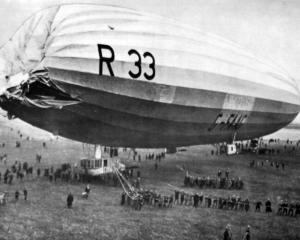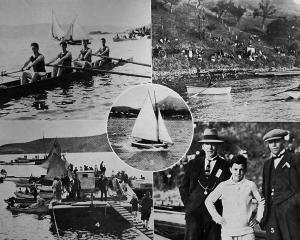Mr Hutchins was for 23 years chief forest officer to the South African Government. Our northern forests greatly impressed the visitor, especially those at Waipoua and Rewarewa, North Auckland, which, he says, are the finest in the southern hemisphere.
He has been all through Australia, having been engaged upon a forestry report for the West Australian Government at the time of his engagement for New Zealand.
Mr Hutchins is of the opinion that the New Zealand forests are being slaughtered ruthlessly.
Since 1883 South Africa has had its forestry arrangements set upon a workable basis, and the system in vogue has proved itself, in as much as the timber is being cut out and yet preserved.
The habit in New Zealand is diametrically opposed to that obtaining in Africa. Here no heed is paid to posterity, Nature, or anything else.
In the north Mr Hutchins found too much larch, which, he says, is not a good tree to grow in these parts.
What is wanted in New Zealand is organisation of forestry, and until that is obtained no good results can accrue.
What we should be doing, according to his authority, is cutting out timber and making more grow in its place.
''In the last big bayonet charge I lost everything I had, including my hold-all and camera, but saved my films,'' writes Private Harry Andrews to the Eltham Argus.
''My mate is going home to Auckland, owing to the shock of a 65-pounder howitzer shell killing seven and burying 19 of them in a tunnel.
We soon dug him out, but he seemed a trifle upset, owing to the suddenness of it.
I have met him several times since, and he is as thin as a rake.
These high explosive shells come through the air with a tearing sound, and bury themselves about 4ft in the earth before they explode.
Nothing but flying sandbags and dirt, etc. But our 14in naval shells, such as the monitors use, are some shell.
They just lob into a Turkish trench full of men and guns, and we say, 'Ma Faesh,' finish. A good many of the Eltham chaps have been wounded.
In fact, I think nearly every one of us has been hit somewhere or other. We are all like colanders.''
At least one Masterton lady will be sorry she spoke when she discovers the real facts in connection with a young man she admonished for not being at the front. . Entering a hardware establishment, the lady was attended by a sturdy young fellow.
''Why aren't you at the front?'' asked the lady, in a rather severe tone.
''Oh, they don't want chaps like me there,'' was the mild reply.
''Yes, they do, and it is your duty to enlist,'' said the ultra-loyal customer.
''But the doctor will not pass me,'' said the young fellow.
The lady gave him a scornful look of disbelief and walked out, not being aware of the fact that the young man spoken to was recently invalided home from the Dardanelles, where he participated in the thickest of the fighting, until he ''stopped a bullet''.
Although he now looks a picture of health, the returned soldier has received his discharge, and it will be a long time before he will thoroughly recover from the wound he received.
It was resolved that a protest be made to the Government against the Acclimatisation Society being allowed to aid the destruction of hawks by paying for their heads, members expressing the opinion that hawks were good friends to the farmer by the war which they waged on young rabbits












